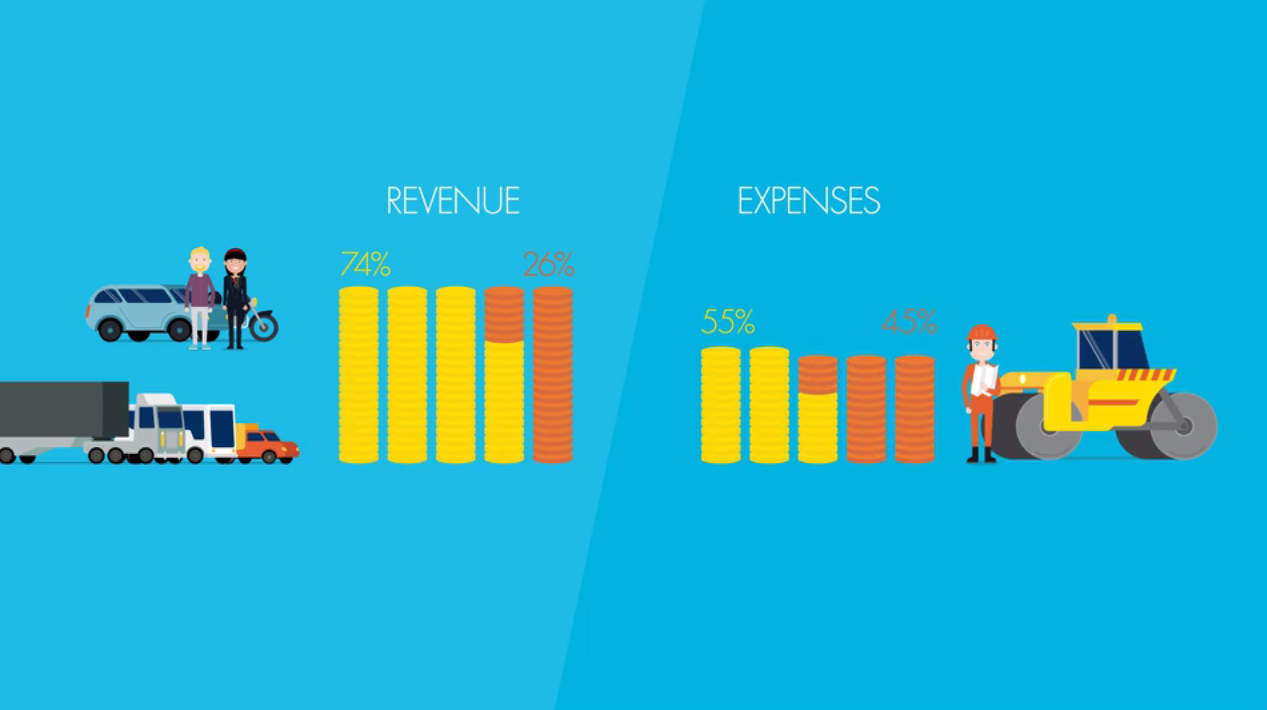
Comparing EU Member States' road network costs and revenue collected from road users
The EU's legal scope of the Eurovignette directive for passenger cars
The challenges in properly assessing external costs of transport
The conditions and impacts of applying emissions trading to road transport
Europe’s roads enable safe and efficient mobility. They form a vital backbone for the economy and society, enabling the free movement of citizens. The Better Deal for Motorists campaign brings together different research studies that analyse the true costs of accessing European roads. The goal of the campaign is to establish good and fair ways to reach sustainable mobility.
As road transport needs to contribute to the European Union’s endeavour to achieve a 55% greenhouse gas emission reduction by 2030 and climate neutrality by 2050. The FIA European Bureau commissioned a study in 2021 on the conditions and impacts of applying emissions trading to road transport. Decarbonisation measures in road transport need to make the desired change reliable and affordable for consumers. Consumer acceptance is particularly important for the success of the transformation to greenhouse gas neutral mobility. Emissions trading can be an appropriate instrument to curb emissions in road transport under certain conditions.
In 2019, the FIA European Bureau published its review of two studies on external costs of transport released by the European Commission. The research shows how difficult it is to properly assess external costs of transport. External costs are based on a significant range of assumptions, which makes their estimation challenging. The study showed a number of significant gaps in the study commissioned by the European Commission. The research confirms that charging for external effects of transport is not suitable to reduce them effectively and it is highly detrimental for low-income consumers.
The first research study conducted in 2016 explored how much road networks cost EU Member State governments compared to the revenue they collect from road users. European motorists make a significant contribution to public budgets, far beyond the revenue needed to cover the costs of operating, maintaining, renewing, and enhancing European road infrastructure. Governments are making a major surplus on road transport revenue. Put to good use, the surplus revenue from road transport could secure safe, affordable, environmentally sustainable, and efficient mobility.
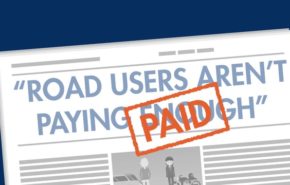
FIA Region I deeply regrets that today the European...
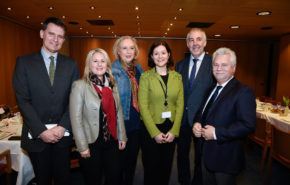
On 8 February 2018, MEPs gathered at the European...
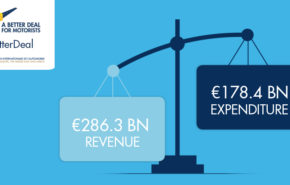
FIA Region I invites you to debate the controversial...
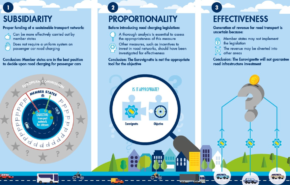
On 22 January, FIA Region I released a new...
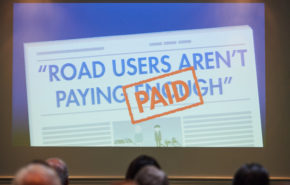
Speaking at a European Parliament Public Hearing on road...
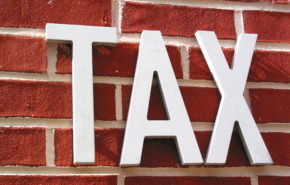
As part of the highly-anticipated Mobility Package, the European...

German Transport Minister Alexander Dobrindt and European Transport Commissioner...
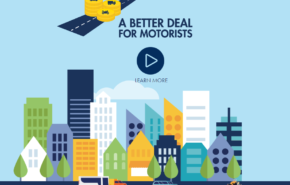
Find out the results of a first-of-its-kind investigation into...

EU Governments generated a surplus of €107.9 billion on...